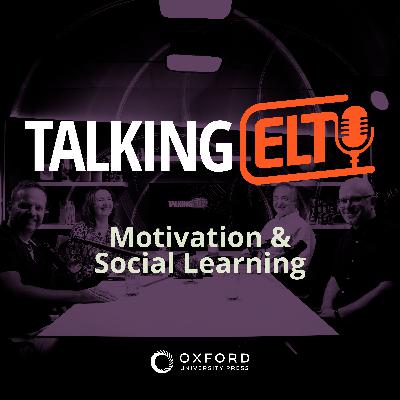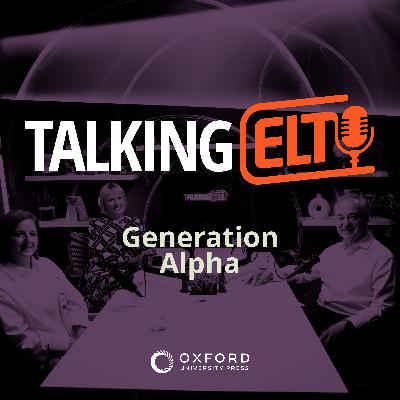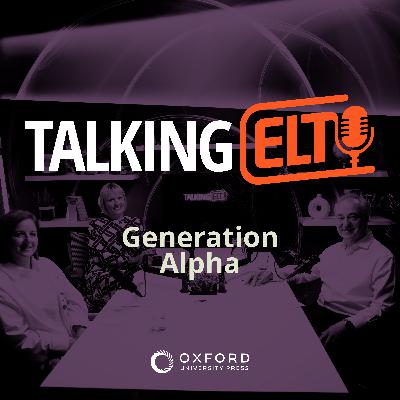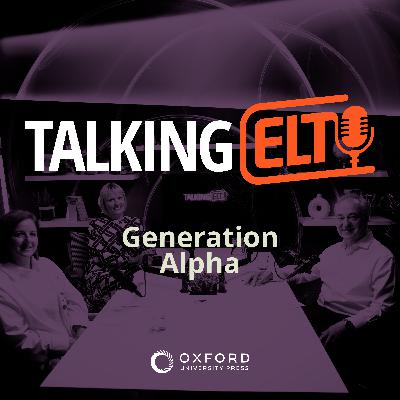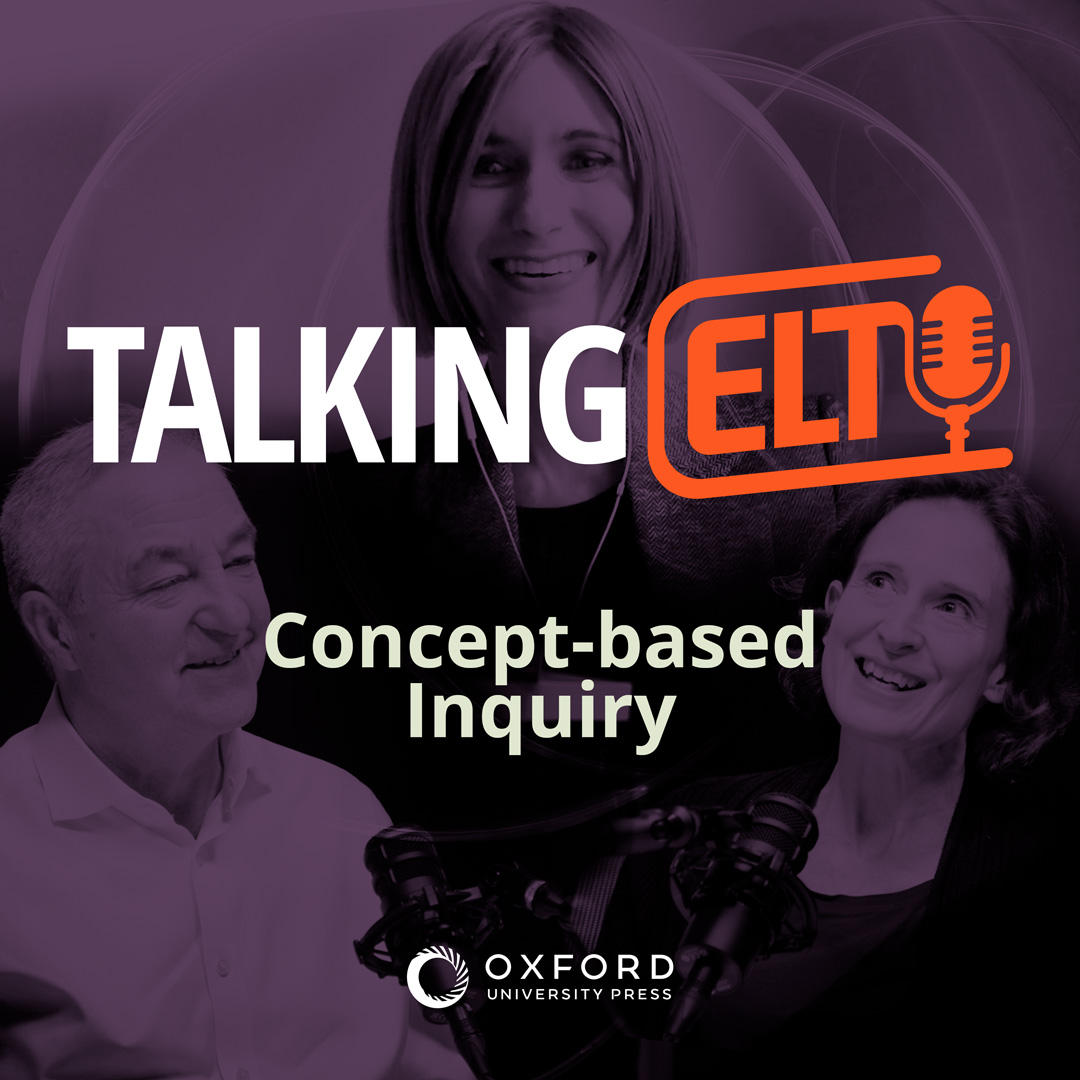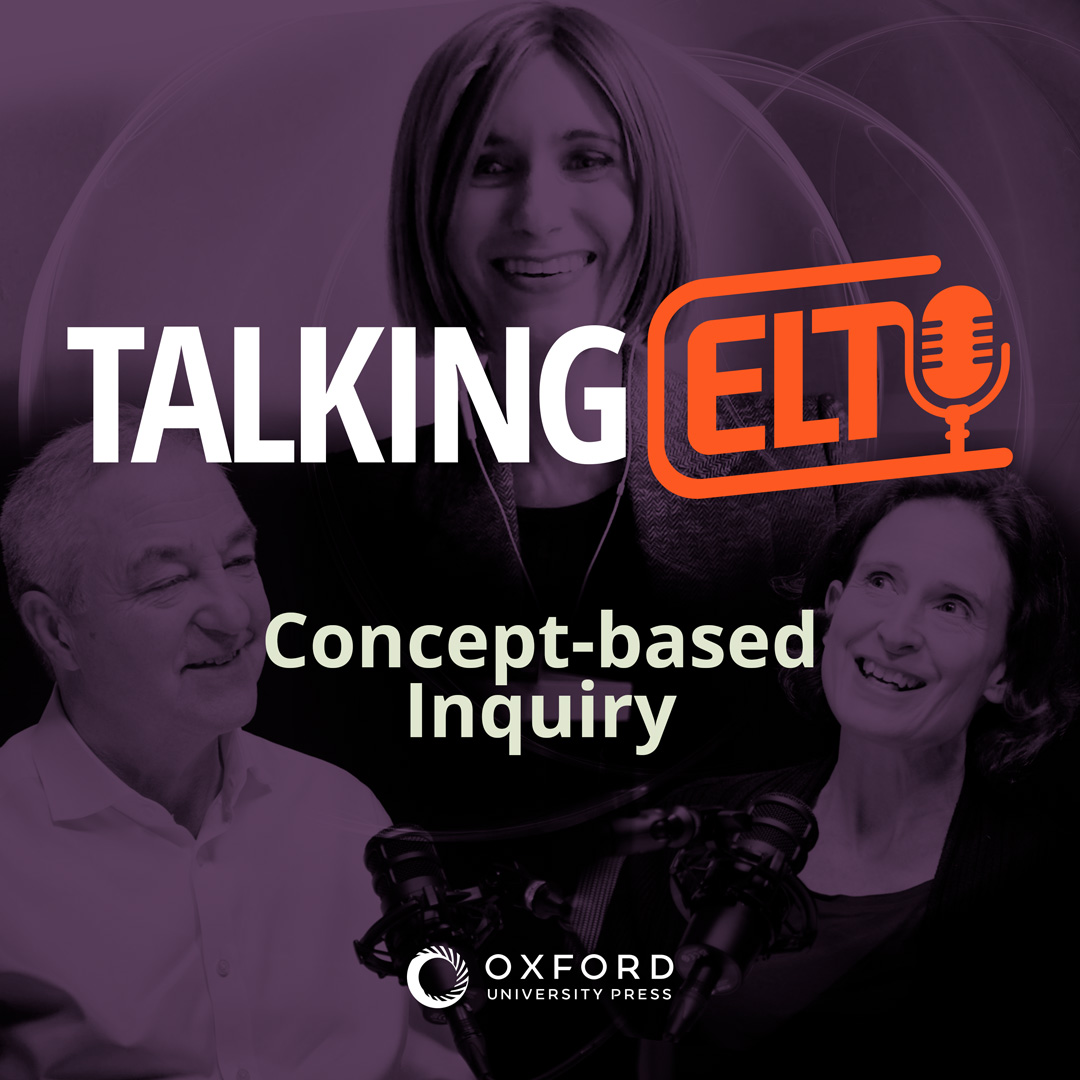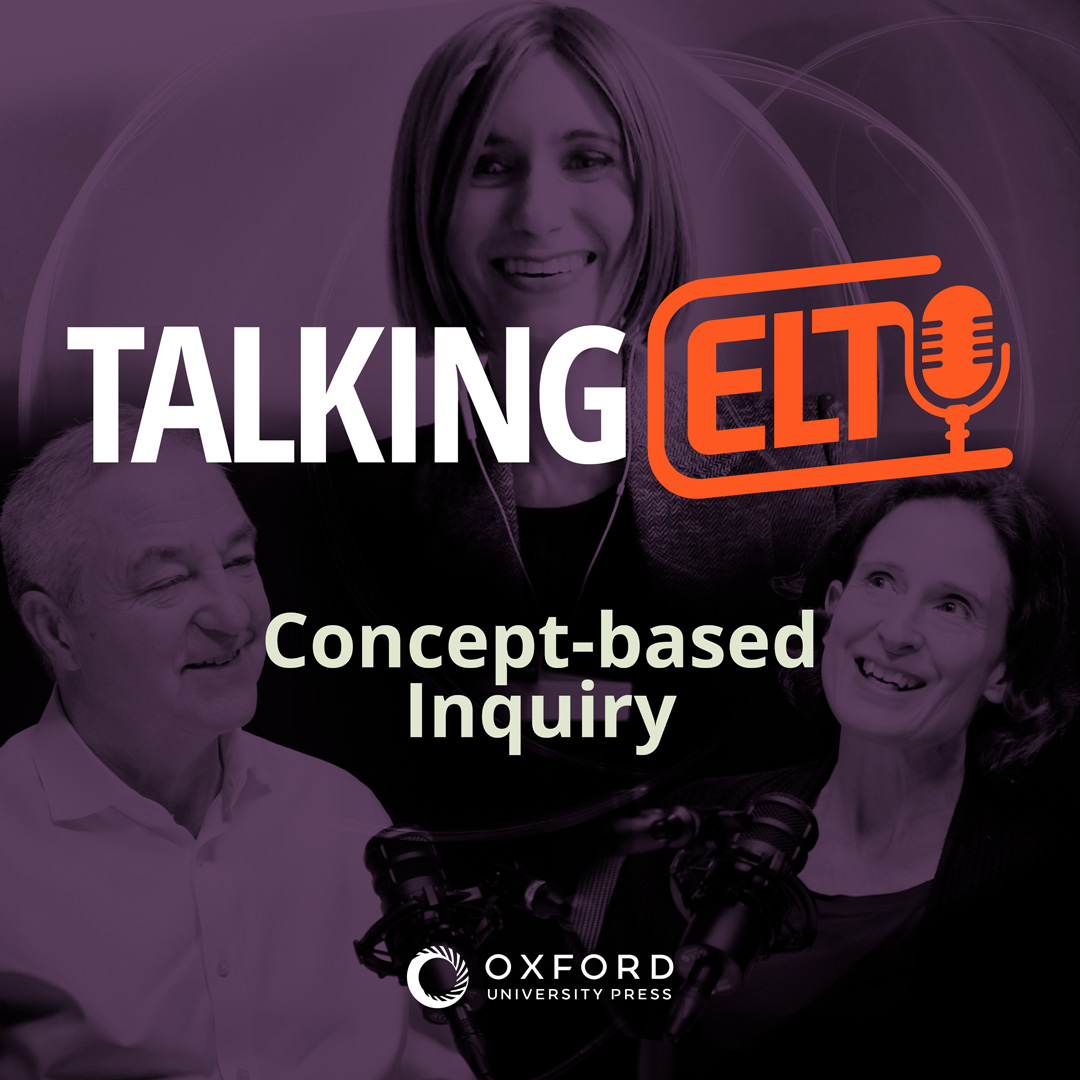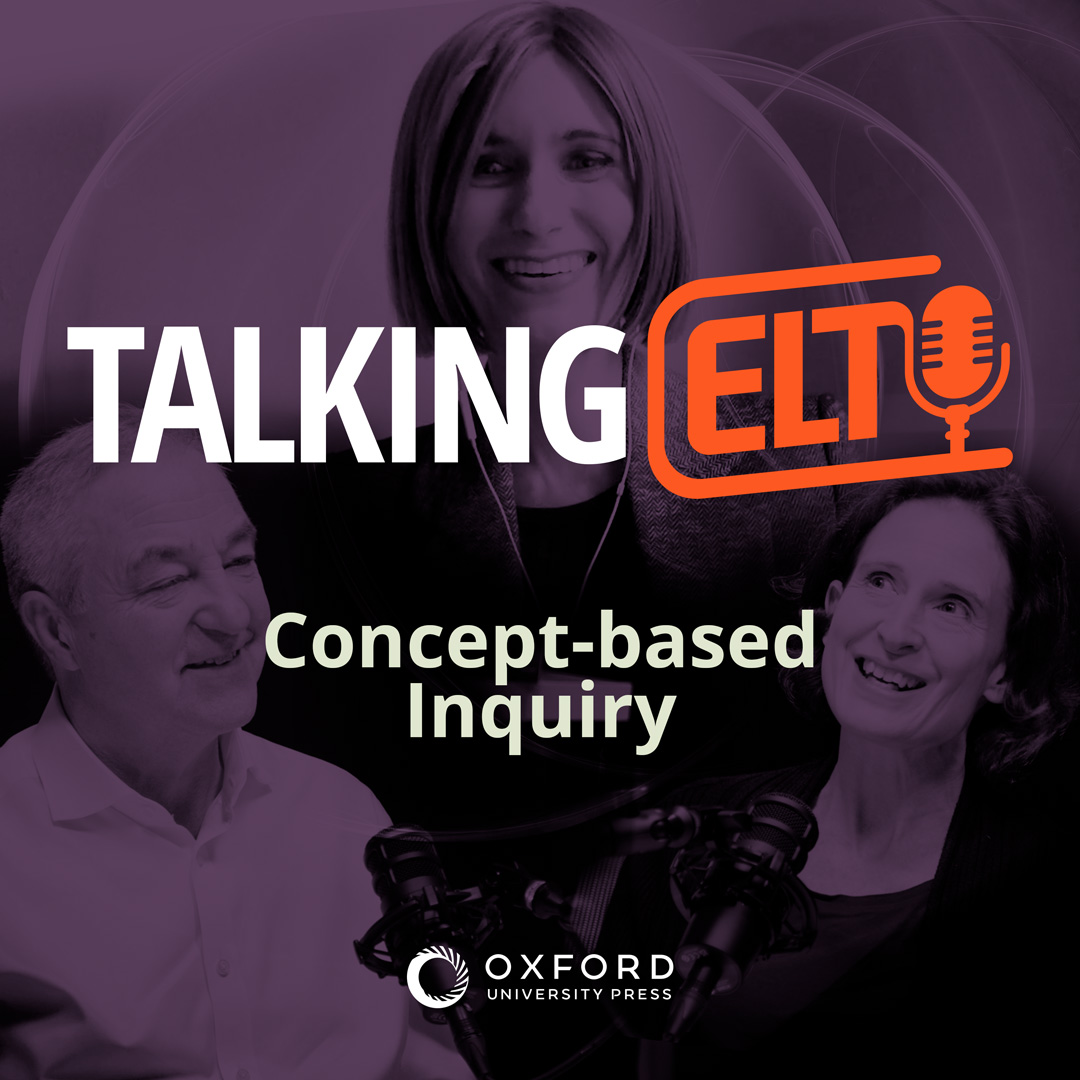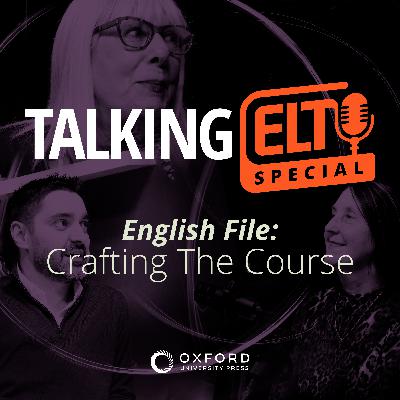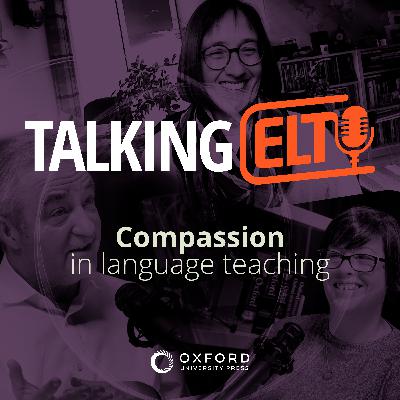Discover Talking ELT
Talking ELT

Talking ELT
Author: Oxford University Press ELT
Subscribed: 116Played: 1,105Subscribe
Share
© 2023
Description
Talking ELT is the easiest place to hear about the big issues in language, where you'll learn everything you need to know in 20 minutes or less. Discover the latest trends, explore new approaches, and stay up to date with the issues you’re curious about. Join guests from around the world as we share stories, ideas, and tips to improve your teaching and brighten your day.
47 Episodes
Reverse
How can assessment be used to support learning, not just measure it? This final episode of our series on the impact of assessment on teaching and learning explores alternative assessment methods like portfolios, peer feedback, and gamification — and how AI is reshaping the future of feedback and test design. Jo Szoke and Nate Owen also tackle ethical concerns and the importance of keeping humans in the loop.
Can reforming exams lead to better teaching and learning? In the third episode of this series, we explore the institutional and policy-level impact of assessment. From integrated skills testing to equity and standardization, Nate Owen and Jo Szoke discuss how assessment design can influence national education systems, and why teacher buy-in is essential for lasting change.
What does assessment literacy really mean for teachers? Episode 2 in our series on the impact of assessment on teaching and learning focuses on the classroom with Jo Szoke and Nate Owen exploring how teachers can design assessments that support learning. We discuss reliability, fairness, rubrics, and how to balance exam preparation with communicative language teaching — plus tips for managing student expectations and motivation.
What is the real impact of assessment on learning? In this opening episode of our series exploring the dynamic relationship between assessment and learning in English Language Teaching, host Ben is joined by ELT Assessment experts Jo Szoke and Nate Owen to explore the concept of washback, the influence of tests on teaching, and how it can be both positive and negative. Nate and Jo share personal stories, classroom experiences, and research insights to help us rethink how assessment can support motivation and progress.
The focus shifts to classroom culture and the teacher’s role in shaping it in the final episode of our Motivation and Social Learning series.
Fiona Mauchline, Nick Thorner and Ed Dudley discuss how to build safe, inclusive, and motivating environments from day one. They look at everything from managing group dynamics and identifying key influencers, to setting classroom norms and scaffolding risk-taking.
The episode also explores how rules, routines, and micro-objectives can empower learners, and how teachers can balance correction with encouragement to foster confidence.
How do we blend the best of digital and face-to-face learning? In the third episode of our Motivation and Social Learning series, Fiona Mauchline, Nick Thorner and Ed Dudley explore the practicalities and pedagogical implications of blended learning in ELT.
From QR code quizzes to multimodal communication and anonymous participation, the episode offers real classroom examples of how technology can enhance—not replace—human connection. The panel also discusses the risks of over-reliance on digital tools, the importance of boundaries, and how to maintain classroom focus and inclusivity in tech-rich environments.
In episode 2 of our Motivation and Social Learning series, Fiona Mauchline, Nick Thorner and Ed Dudley unpack the concept of social learning and its critical role in language acquisition.
They compare solitary learning experiences with group-based classroom dynamics, highlighting how peer interaction, relevance, and belonging can dramatically affect learner outcomes. The discussion also touches on the teacher’s role in building rapport, the importance of group motivation, and how online learning environments can both support and hinder social connection.
In this opening episode of our series on Motivation and Social Learning, Ben is joined by ELT experts Fiona Mauchline, Nick Thorner and Ed Dudley to explore the evolving nature of learner motivation in today’s digital-first world.
Drawing on personal teaching experiences and research insights, the conversation delves into intrinsic vs. extrinsic motivation, the impact of dopamine-driven apps like Duolingo, and the challenges of sustaining engagement over time. The panel also reflects on how motivation is not just internal but deeply social, and how teachers can foster it through purposeful interaction and classroom design.
In this special episode of Talking ELT, we explore how content creation and microlearning are transforming the world of English Language Teaching (ELT).
Host Andrew is joined by two standout influencers in the ELT space: Mariwan Abdalla (English with Rahel) and Alex Fielder (Teacher Alex).
They share their journeys from classroom teaching to building global audiences online, discuss how Gen Alpha learns differently, and reveal how AI is shaping the future of education. You’ll hear practical tips on creating engaging content, avoiding burnout, and staying authentic while building a digital teaching brand.
Whether you're a teacher, learner, or content creator, this episode is packed with insights on how to thrive in the evolving ELT landscape.
Follow Alex here: https://www.instagram.com/alexworldwide0/
Follow Mariwan here: https://www.instagram.com/englishwithrahel/
In the final episode of our Generation Alpha series, we explore the heart of modern classroom challenges: how to engage students with shorter attention spans and tech-shaped expectations.
Our expert guests unpack the neuroscience of motivation, the power of chunking and multimodality, and the role of gamification—both its benefits and its pitfalls. Discover practical strategies for boosting attention, fostering intrinsic motivation, and co-creating learning experiences that resonate with Gen Alpha.
Plus, we dive into the importance of growth mindset, real-world relevance, and how to involve parents in meaningful ways. A must-watch for educators navigating the evolving landscape of 21st-century learning.
For more insights and practical strategies, explore Erika Galea and Olga Sayer’s book Generation Alpha in the Classroom: New Approaches to Learning—a neuroscience-informed guide for teaching today’s learners - > https://oxelt.gl/4lkXtwU
In the third episode of our Generation Alpha series, we tackle the intersection of technology, AI, and education. Discover how Gen Alpha’s relationship with tech affects attention spans, emotional regulation, and classroom engagement. Our guests share insights into the evolving role of teachers—from content deliverers to facilitators of metacognition and emotional intelligence.
Learn how to use tech meaningfully, avoid overstimulation, and build deeper connections with students in a rapidly changing educational landscape.
For more insights and practical strategies, explore Erika Galea and Olga Sayer’s book Generation Alpha in the Classroom: New Approaches to Learning—a neuroscience-informed guide for teaching today’s learners - > https://oxelt.gl/4lkXtwU
In episode 2 of our Generation Alpha series, we explore the social side of Generation Alpha—how they connect, communicate, and collaborate in a digital-first world.
Our guests unpack the neuroscience behind empathy, mirror neurons, and emotional development, revealing how online interaction impacts offline social skills. Learn practical strategies for fostering face-to-face communication, empathy, and emotional regulation in the classroom.
This episode is a must-listen for educators navigating the complexities of teaching socially aware but digitally immersed learners.
For more insights and practical strategies, explore Erika Galea and Olga Sayer’s book Generation Alpha in the Classroom: New Approaches to Learning—a neuroscience-informed guide for teaching today’s learners - > https://oxelt.gl/4lkXtwU
In this eye-opening episode of Talking ELT, we dive into the defining traits of Generation Alpha—students born into a world of digital immersion and rapid change. Our expert guests explore how Gen Alpha's brains are neurologically wired for fast-paced, tech-driven learning, and how their dopamine-driven motivation and cognitive flexibility shape classroom behavior.
Discover how educators can adapt to these shifts, redefine their roles, and harness Gen Alpha’s strengths for more effective teaching. Perfect for teachers, parents, and education professionals seeking to understand the future of learning.
For more insights and practical strategies, explore Erika Galea and Olga Sayer’s book Generation Alpha in the Classroom: New Approaches to Learning—a neuroscience-informed guide for teaching today’s learners - > https://oxelt.gl/4lkXtwU
In this episode, we look more closely at what it actually means in practice to adopt a Concept-based Inquiry approach, and when it’s most appropriate. This includes a lot of practical advice on how to get started with this, if this is something new to you.
In this episode, we focus on why you should consider making use of the Concept-based Inquiry approach. We look at the benefits to the students, as well as what it means for the way the teachers engages with them in the class. This leads on to the question of whether this approach helps teachers better manage the diversity of learners in their classes.
In this episode, we look at how a Concept-based Inquiry approach works when teaching a language, such as English. We go into more detail about BICS and CALP, and even the concept of Common Underlying Proficiency. We also discuss how this relates to the use of the students’ L1 in the classroom.
In this episode, we discuss what Concept-based Inquiry really means, and how it relates to other inquiry based learning approaches. We also look at the use of ‘generalisations’ or Big Questions at the heart of the approach.
In this special episode of Talking ELT, we dive into the minds behind one of the most loved ELT course books around the world, English File.
Christina Latham-Koenig and Kate Chomacki, two of the authors of the series, share how English File was conceived and has developed over nearly 30 years from its humble beginnings to the launch of the much anticipated fifth edition this year. They share their personal stories, motivations and the collaborative process that has enabled them to craft this global ELT phenomenon.
Learn more about how its proven methodology came to pass and how they’ve evolved the fifth edition to keep it fresh and keep students talking in the modern ELT classroom.
In this episode, we expand the notion of compassion in the world beyond the classroom. Does language learning link naturally to understanding other people outside our own experience? How does compassion fit into our development of global competencies? How might we extend this to compassion towards the planet and the environment?
Teaching for compassion is the conscious development of learners’ skills of caring for themselves, for others and for the planet. This episode focuses on the skills of self-compassion, including emotional regulation. This includes discussion of feedback, correction, and perfectionism.






